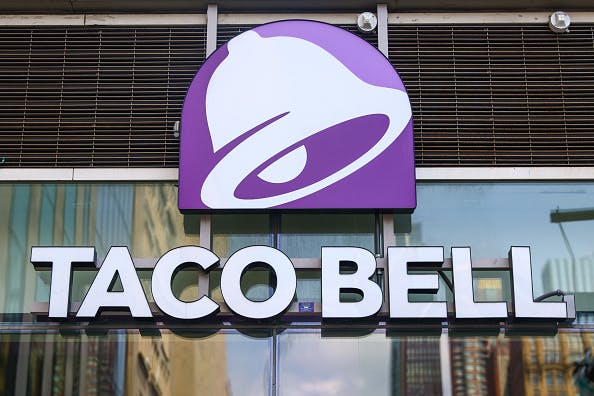It’s not a great time for fast-food companies, unless you’re Taco Bell
Taco Bell is keeping Yum! Brands afloat and (so far) it’s winning the fast-food value war.
America’s inflation comfort food is, apparently, Taco Bell.
The chain restaurant is known for its Mexican-inspired cheap eats and items that sound like they were made in a test lab for stoners, like its giant Cheez-It tostada. It’s also the only restaurant in the Yum! Brands portfolio that is actually growing.
Taco Bell’s siblings, KFC and Pizza Hut, each saw same-stores sales decline of 4%, according to a Yum! Brands quarterly filing released Tuesday. Taco Bell’s same-store sales, meanwhile, were up 4%.
Taco Bell represents 75% of Yum! Brands profits, CEO David Gibbs told investors on Tuesday. The company as a whole missed Wall Street estimates, but investors still sent its stock rising about 2%.
Taco Bell’s success comes at a tough time for fast-food brands. Many of them raised prices over the past couple years until they hit a ceiling where customers no longer recognized them as the cheap meal they once knew. If they’re going to pay $15 for a meal, they’re going to go to the more premium chains like WingStop or Chipotle.
This summer, restaurants started rolling out value meals aimed at fixing their relationship with customers. McDonald’s introduced its $5 meal deal and its CEO, Joe Erlinger, declared to Bloomberg News in June that he is “committed to winning the value war.”
But so far, Taco Bell is wining that war. It’s the only one of its top fast-food competitors that reported same-store sales growth: Wendy’s and Burger King were virtually flat, and McDonald’s was down 1.5% as of the end of September.
Gibbs said Taco Bell’s advantage is that it “can provide a product that is a value product, that’s an innovative product, and that can help our franchisees’ margins.” In other words, you might go to Taco Bell to try the new Cheez-It tostada or because you only have $5.
“We’re very confident in Taco Bell’s ability to win in this environment relative to our peers," Gibbs said.
